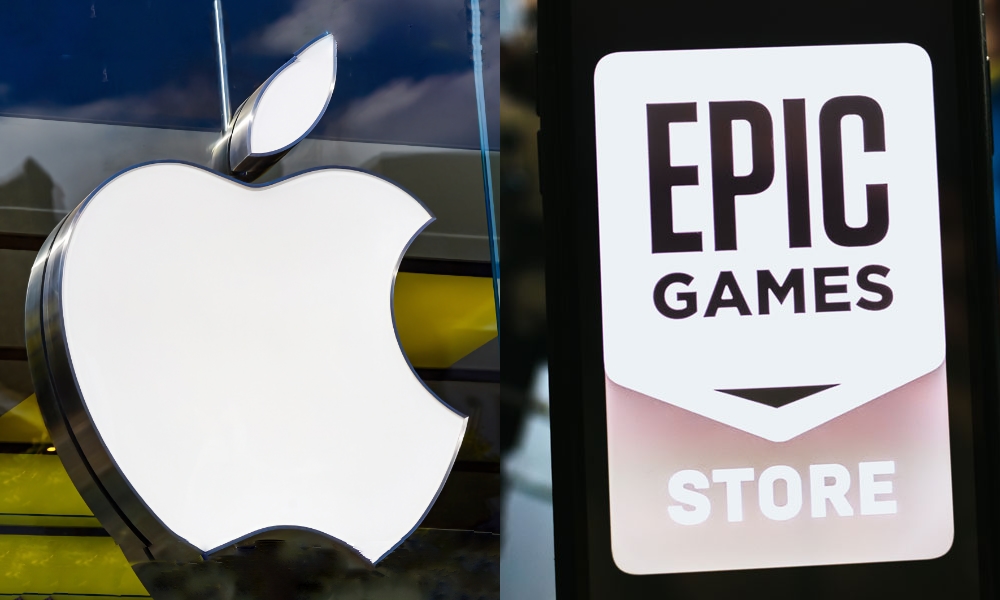Apple Welcomes Epic Games Back to the iPhone — Sort Of
 Credit: Vytautas Kielaitis / nikkimeel / Shutterstock
Credit: Vytautas Kielaitis / nikkimeel / Shutterstock
Toggle Dark Mode
You might want to check the temperature outside to see if hell has indeed frozen over. Apple has reinstated Epic Games’ developer account, once again allowing it to publish apps for the iPhone and iPad — at least in the European Union.
For those who haven’t been keeping up, Apple terminated Epic’s developer account with extreme prejudice in 2020 after the Fortnite maker effectively declared open war on the App Store. Apple’s position on turfing Epic was simple: the company had blatantly breached its developer agreement by deliberately deceiving Apple and doing an end-run around its app review process, so it was no longer welcome to be a member of Apple’s Developer Program.
Apple’s decision was a simple matter of contract law, and it was upheld by the courts before the protracted legal battle between the two companies even got going. Although Apple repeatedly said it would be willing to welcome Epic and Fortnite back if the company agreed to play by its rules, after a year of legal wrangling and several appeals that tried to reach all the way to the Supreme Court, it didn’t seem like there was going to be any mending of fences.
Nevertheless, it seems that the winds of App Store change blowing in Europe have opened the door to a reconciliation of sorts. Thanks to the European Union’s Digital Markets Act (DMA), Apple is opening up to alternative app marketplaces, and Epic Games is naturally lining up to be one of the first of those to land on the iPhone when iOS 17.4 debuts next month.
Epic Games CEO Tim Sweeney has long been one of the most vociferous opponents of Apple’s App Store policies, and Apple’s concessions in the EU haven’t changed his stance much — last month, he accused the company of “malicious compliance” in attempting to “thwart Europe’s new Digital Markets Act law” — however, he was also quick to acknowledge what he called a “good faith” move on Apple’s part in extending an olive branch to let it set up an Epic Games Store in the EU.
Apple may not have had much of a choice, as the DMA at least indirectly forced its hand here, but at least Sweeney is being conciliatory enough to avoid pointing that out.
Granted, Apple doesn’t owe anybody a developer account, so it’s unlikely it would have gotten in any hot water had it not opened the doors to an Epic Games Store. However, Apple almost certainly wants to be shown to be complying with the new reality as graciously as possible, especially since some seem to think it’s only doing so “maliciously.”
The crux of the argument from those opposed to Apple’s changes in the EU is that the company hasn’t opened things up broadly enough and that it’s still charging much higher fees than anybody wants to pay.
For example, iPhone owners still won’t be able to load apps on their devices from just any old website, so this isn’t open sideloading. Instead, Apple is allowing other companies to set up their own app marketplaces, which will have to be approved by Apple and installed onto an iPhone as special marketplace apps, similar to the App Store. Apple will also charge a per-install fee each time an app is downloaded and installed by a new user, and every 12 months it’s reinstalled or updated after that.
While Apple can’t play favorites in deciding who can set up these marketplaces, it can set some minimum requirements to be allowed to play, and in this case, it’s a pretty lofty bar. Since Apple feels it’s still its responsibility to make sure its iPhone customers are taken care of, it requires companies who wish to open an app marketplace to have a 1,000,000 Euro line of credit to ensure they can deal with any developer or customer service issues that may come up and also provide a detailed set of policies for how they will handle issues like refunds and customers service.
Of course, Epic Games can easily meet those standards, and Sweeney is more or less getting what he wanted when he began his fight with Apple nearly four years ago: an iPhone app store of his own. The terms may not be entirely to his liking, but at least his company won’t be paying Apple a 30% cut of all in-game purchases from Fortnite.







